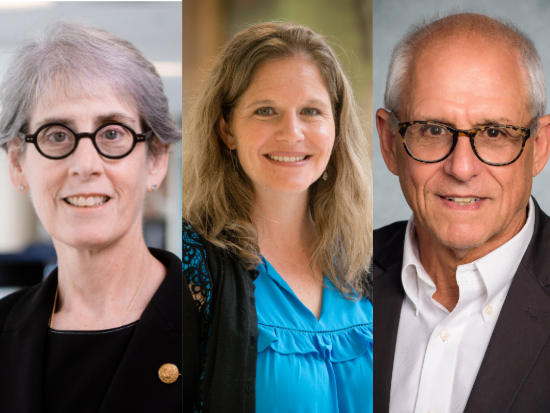 Tuberous sclerosis complex (TSC) is a genetic condition that leads to the development of benign tumors in multiple organs, including the brain, eyes, heart, kidneys, skin, and lungs. This condition can arise from inherited genetic factors or mutations occurring during conception or early embryonic development.
Tuberous sclerosis complex (TSC) is a genetic condition that leads to the development of benign tumors in multiple organs, including the brain, eyes, heart, kidneys, skin, and lungs. This condition can arise from inherited genetic factors or mutations occurring during conception or early embryonic development.
TSC is relatively rare, affecting approximately 1 in 6,000 newborns. Globally, nearly one million individuals live with this disorder, with an estimated 50,000 cases in the United States.
“It affects both males and females equally and is present in all races and ethnic groups,” said Martina Bebin, M.D., director of the UAB TSC Clinic and professor in the UAB Department of Neurology. “The condition can show up in many ways, but it most significantly affects the brain, leading to seizures, developmental delays, intellectual disabilities, and autism. These symptoms can greatly reduce the quality of life for those affected.”
Through research and clinical efforts, UAB researchers have been at the forefront of TSC research to better understand and address the impact of TSC on patients.
Three UAB researchers are among the eight who were recently honored with the Progress in Research Award from the TSC Alliance, a nonprofit focused on advancing TSC research and supporting investigators. This recognition celebrates their achievement in clinical research, the PREVeNT Trial.
The three UAB TSC researchers include Bebin, the principal investigator of the trial and a founding member of the TSC Clinical Research Consortium; Sarah O’Kelley, Ph.D., associate professor in the UAB Department of Psychology, lead neurodevelopmental psychologist for the trial; and Gary Cutter, Ph.D., professor emeritus in the UAB Department of Biostatistics and the trial's biostatistician.
“The PREVeNT Trial core team receiving the Progress in Research Award from the TSC Alliance at their 50th Year Gala highlights significant contributions to the field,” Bebin said. “Their work, which involved launching the first preventive clinical trial for epilepsy in the United States aimed at preventing or delaying seizures in infants with TSC, represents a major milestone. This pioneering trial has set the stage for future research focused on preventative treatments for TSC.”
Bebin offers additional information about the UAB TSC Clinic and its clinical research.
What services does the UAB TSC Clinic provide for patients with TSC?
Bebin: The UAB TSC Clinic was established in 2007, becoming the first of its kind in the Southeast. It serves patients with confirmed or suspected TSC diagnoses. The clinic is staffed by specialists in genetics, neurology, dermatology, and genetic counseling and collaborates with experts in endocrinology, pulmonology, nephrology, neurosurgery, ophthalmology, and other fields. This center offers patients and their families access to health care professionals well-versed in TSC care guidelines and familiar with the common medical and emotional challenges associated with the condition.
Our providers are dedicated to offering the latest information on TSC treatment and research. As a major research center, UAB participates in numerous clinical trials, potentially providing our patients access to cutting-edge therapies not available at other medical centers.
How does the clinic support families and caregivers of TSC patients?
Bebin: One key feature of the UAB TSC Clinic is its comprehensive care for patients from infancy through adulthood. The clinic's team includes pediatric and adult specialists who work closely with primary care physicians to ensure optimal care for all family members affected by TSC.
In addition to providing specialized medical care for TSC, the clinic aims to empower its patients by educating them about the condition and teaching them how to be effective advocates for themselves or their family members with TSC.
What is the primary objective of the PREVeNT Trial?
Bebin: This Phase IIb trial tested whether giving vigabatrin as a preventive treatment could improve the development of infants with TSC by the time they are 24 months old. It also looked at whether this treatment helps prevent seizures and reduces the chances of developing epilepsy that doesn’t respond to medication.
What did the results of the trial show?
Bebin: The PREVeNT clinical trial discovered that using vigabatrin to treat early epileptiform EEG changes before seizures start can delay and reduce the overall number of infantile spasms in infants with TSC. However, there was no difference in the time to first seizure or improvements in cognitive and adaptive behaviors by 24 months between the vigabatrin and placebo groups.
The trial confirmed that serial EEGs during infancy are useful for monitoring the risk of seizures and highlighted a brief period between detecting EEG changes and the actual onset of seizures when intervention is most effective.
How might the results of the PREVeNT clinical trial impact patient care or treatment strategies for infants with TSC?
Bebin: The trial also confirmed that frequent neurological checkups during the first year improve the chances of early detection of both focal seizures and infantile spasms, which is crucial for the best possible developmental outcomes. The results also underscore the need for better therapies to prevent epilepsy and address cognitive and behavioral issues in TSC.